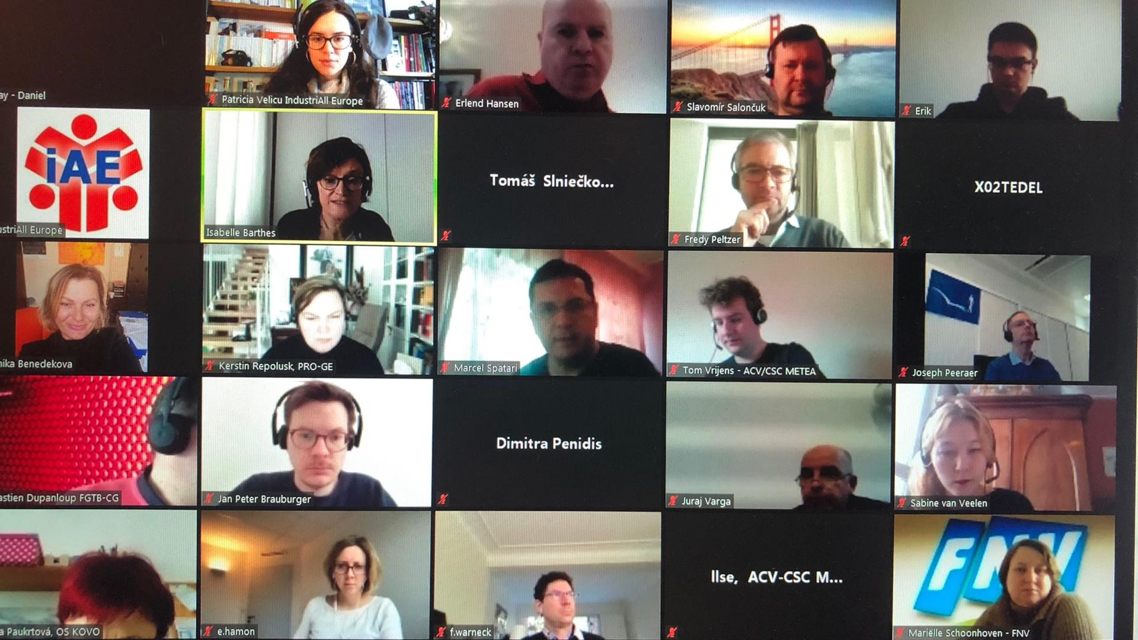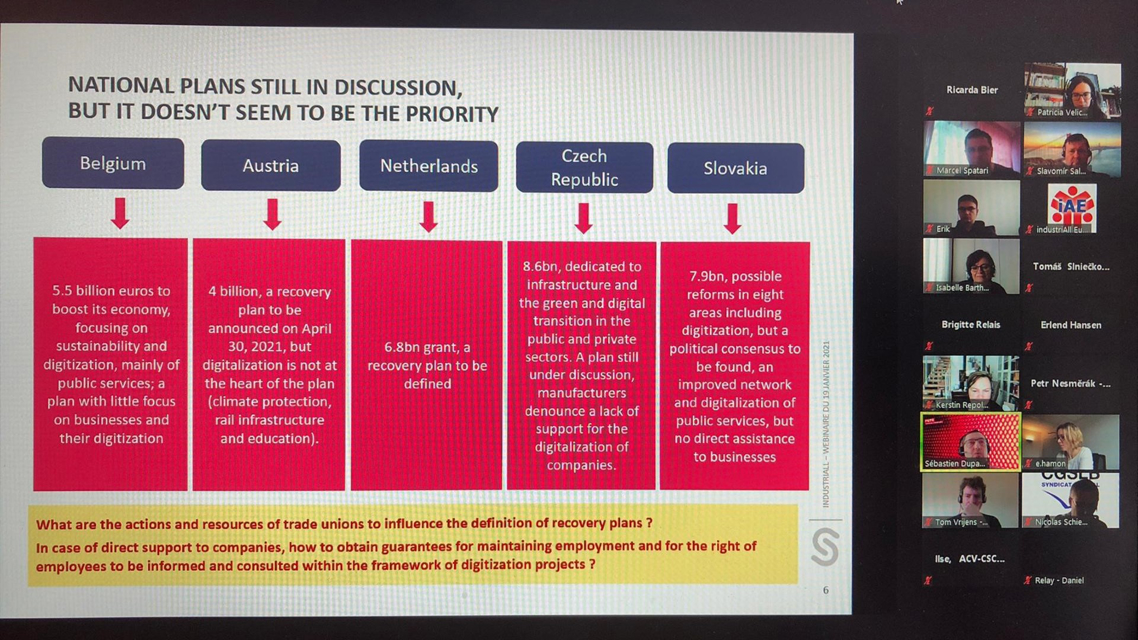Countries that fail to invest in digital transformation right now, risk leaving their industry and their workers behind.
The research findings were presented during the first three webinars in a series of regional workshops* that are part of an EU-funded project analysing the impact of digitalisation in our sectors. The scope of the project was enlarged to include an analysis of the current crisis on the digital transformation of our sectors.
Digitalisation of industry depends heavily on several key points that must be considered when discussing structural support and employment fit-for-future. ‘Next Generation EU’, the recovery plan of the European Union, tries to address those challenges. With 20% of the budget earmarked for investments in digitalisation, the political will to accelerate the transformation is clearly recognisable.
Yet, the reality shows that regional and economic imbalances hamper investments in digital transformation. Consequently, workers are at risk of losing their jobs. Our workshops have revealed that digital investments, especially under the recovery plan, are decisively easier for larger and multinational companies (MNC) than for small- and medium-sized companies (SME). Companies which have already invested in a digital infrastructure in the past are better equipped for the challenges ahead than those in which investments have been stalled. The sectoral disparities are also often a problem.
Some companies simply lack the financial means to invest in the transformation of their business model, or even to develop a corresponding strategy on that. This adds to the worrying trend that some Member States are not prioritising digitalisation. Many countries have not included explicit chapters on the digitalisation of industry in their National Recovery and Resilience Plans (NRRP). This is a missed opportunity for industry and workers alike. Countries that do not invest in digital transformation right now, risk leaving their industry and their workers behind.
Spill-over effects from investments in other sectors will not be enough to save the industry. Governments should therefore rethink their strategy and develop incentives for further investments in a digitalised industry, embedded in a coherent national industrial policy in line with the flagship programmes of the European Union.
There are, on the other hand, numerous reports of companies that try to channel money from recovery funds into projects that have already been planned. This will clearly not help the economy to recover. Furthermore, labour is so cheap in many countries, that companies simply lack the incentives to invest in process optimisation and digitalisation. This is short-sighted, as it puts the future of industry at risk. Social partnership and collective bargaining are essential to address these shortcomings that put the future of industry at risk, and there is a clear need for upward wage convergence.
Countries lacking a political vision of an industry fit-for-future are often at the heart of the problem. The EU industrial strategy will help, but can only be effective if Member States become active as well. Our research and trade union reports have shown that countries with an industrial strategy of their own are more advanced than others in the transformation of industry. Countries that are lagging behind are often those where social partners are not satisfactorily consulted on the future of their sectors and employment in their regions. In most cases, this is intensified by a lack of industrial cohesion and vision for an industry fit for the digital age, embracing and mastering the digital technologies, with a skilled workforce.
Isabelle Barthès, Deputy Secretary General of industriAll Europe:
“We repeat our call on national governments to consult social partners in the design and implementation of the national recovery and resilience plans, and to focus on the digital transformation of industry. Countries that fail to invest in digital transformation right now, risk leaving their industry and their workers behind".
“Our evidence shows that workers, industry and government must act together to bring about the digital transformation of industry. A clear political vision of the industry of the future is needed for workers, regions, and industry alike.”
*Regional workshops were organised for Europe’s South (France, Italy, Spain, Portugal) and Centre-East regions (Poland, Hungary, Romania, Bulgaria) in January 2021 and for the West-Centre region (Austria, Czechia, Slovakia, the Netherlands and Belgium) in early February. A workshop for the West-North region (Finland, Sweden, Norway, Denmark, Germany, UK) will follow later this month.



